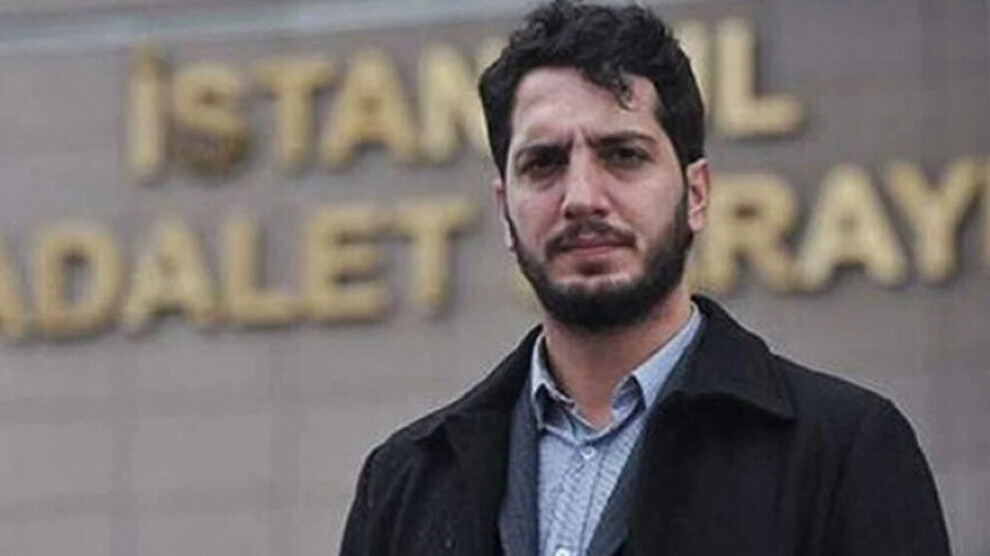Veysel Ok: Journalists' work on the Kurdish issue is on trial today
MLSA co-director Veysel Ok said that the journalists' work on the Kurdish issue was criminalized.
MLSA co-director Veysel Ok said that the journalists' work on the Kurdish issue was criminalized.

The first hearing of the case against 18 journalists, 15 of whom are imprisoned, began today in Diyarbakir. Media and Law Studies Association (MLSA) co-director Veysel Ok said that journalism was on trial and called on everyone to show solidarity.
The first hearing of the case against 18 journalists, 15 of whom are still in prison, began. The journalists were detained and sent to prison in Amed in June 2022.
Examining the 728-page indictment prepared by the Diyarbakır Chief Public Prosecutor's Office, MLSA co-director, lawyer Veysel Ok said that most of the indictment was prepared using the copy-paste method, as in many similar cases.
Speaking to ANF, Ok said: "When you read the indictment, you realize that what is on trial is actually journalism. The indictment describes the KCK organization in hundreds of pages. It describes the structure of the KCK, its culture, its press committee, this and that, but this has nothing to do with journalism. You will find the same statements in Demirtaş's indictment, as well as in the indictment of journalists on trial in Van. Prosecutors feel obliged to make such a political statement just to establish the journalists' ties with the [KCK] organization, but of course, no concrete relationship can be established between the journalist and the KCK."
Accused of making news for the news agency they work for
Ok said that the journalists' work on the Kurdish issue is criminalized, and added: "They are associated with terrorism even because they produce news about the Kurdish issue, public demonstrations, Kurdish-language broadcasts, Kurdish-language programs, and moreover, for the agency they work for. The journalists are prevented from following social demonstrations and attacked by police. Social media posts are also criminalized. All in all, there is no surprising evidence in that indictment. All those claims and actions are the same as the claims and actions in other cases. Therefore, the prosecution actually associates journalism with terrorism and the [KCK] organization throughout the indictment, without showing a single piece of evidence of that."
A crime in 2023 but not in 2014
Veysel Ok drew attention to the fact that it was not a crime for journalists to report in Qandil during the peace process, but that it is a crime today, and lawsuits were filed. Ok said: “Going to Qandil during the peace process is also considered a crime in this indictment. But we know that those journalists went with the permission and approval of the state. They went with the passport issued by the state. They also published these interviews, and many media outlets took and shared those interviews. An interview made in 2014 was not considered a crime at that time, yet it is in 2023. Journalists were asked why they went to Qandil, and who they met there. The journalists answered that they were there with the request and approval of the state."
Lawyer Ok said that it took a year to set the date of the first hearing and added that "for 12 months the journalists did not appear before the judge. They were not given the opportunity to defend themselves. This is also a conscious choice, because both the prosecution and the court knew that on the day of the trial, journalists and their lawyers would squash these allegations. They will have to release them and if they don't release them today, they will extend the trial as a result of a political decision. Besides, their aim is to keep the detention going in order not to discuss the indictment and not to drop the charges. This is used as a separate punishment method. In fact, it's used not just against Kurdish journalists, but against all political cases lately."
The biggest case of recent times
Lawyer Ok said that “this trial is the biggest trial of journalists of recent times. For the first time, they will refute the allegations against them. This trial is also important in terms of journalist solidarity. After all, if we protest the arrest of a journalist in Istanbul, we should protest the arrest of journalists in Diyarbakir as well. The judges should feel this solidarity and act more carefully."